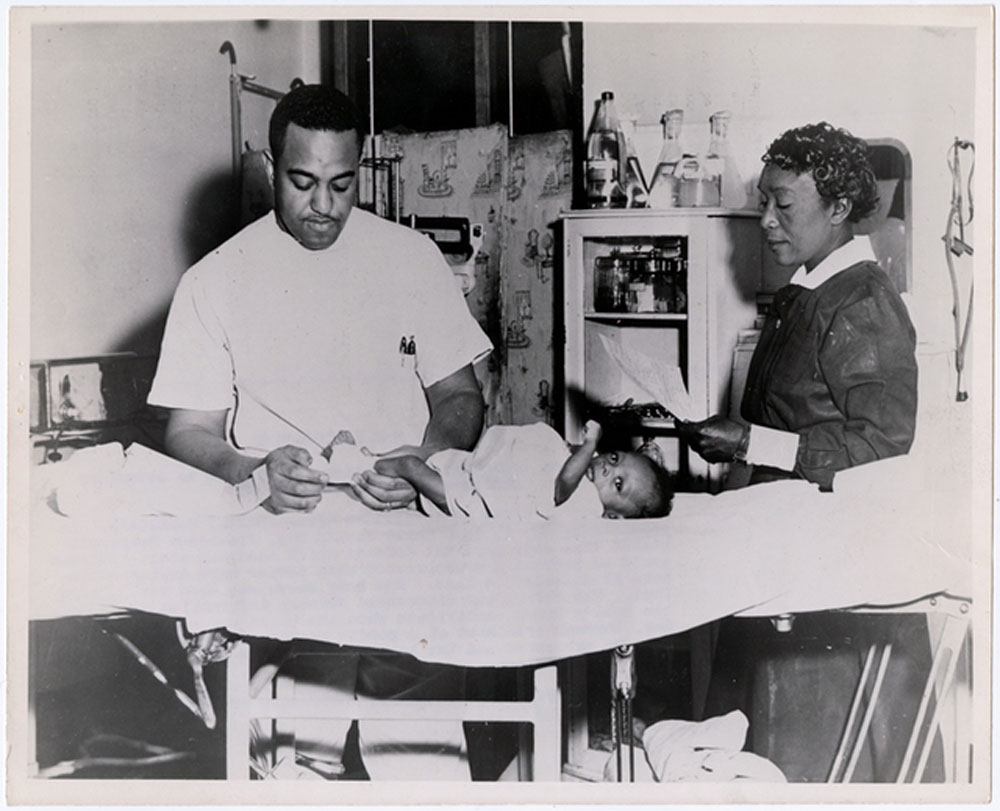
April 3, 2020; ProPublica
Health disparities by race did not start with the coronavirus pandemic. “In Milwaukee, simply being Black means your life expectancy is 14 years shorter, on average, than someone white,” note Akilah Johnson and Talia Buford of ProPublica. But while the novel coronavirus has hit people of all ethnic and racial groups, preliminary data make it increasingly clear that Blacks have been hit the hardest. For example, as of April 3rd, Black patients made up nearly half of Milwaukee County’s 945 cases and 81 percent of its 27 deaths in a county whose population is 26 percent Black.
Milwaukee, note Johnson and Buford, “is one of the few places in the United States that is tracking the racial breakdown of people who have been infected by the novel coronavirus, offering a glimpse at the disproportionate destruction it is inflicting on black communities nationwide.”
Milwaukee is not the only community tracking mortality by race, however. In nearly Michigan, where Blacks are 14 percent of residents, Black patients made up 35 percent of confirmed cases and 40 percent of deaths, again as of April 3rd. Illinois and North Carolina data also find a similar pattern. National data from the US Centers for Disease Control and Prevention (CDC) has not yet been released, however.
“Experts,” write Johnson and Buford, “say that the nation’s unwillingness to publicly track the virus by race could obscure a crucial underlying reality: It’s quite likely that a disproportionate number of those who die of coronavirus will be Black.”
The reasons for the disparate impact are similar as to why Blacks have disproportionately high rates of maternal death and higher rates of asthma, notes Dr. Camara Phyllis Jones, a visiting fellow at Harvard University. “COVID is just unmasking the deep disinvestment in our communities, the historical injustices and the impact of residential segregation,” says Jones, who spent 13 years at the CDC, where she worked on identifying, measuring, and addressing racial bias within the medical system.
Five congressional Democrats wrote a letter on March 27th to US Health and Human Services Secretary Alex Azar, whose department encompasses the CDC, demanding the federal government track pandemic cases by race and ethnicity.
Sign up for our free newsletters
Subscribe to NPQ's newsletters to have our top stories delivered directly to your inbox.
By signing up, you agree to our privacy policy and terms of use, and to receive messages from NPQ and our partners.
Milwaukee officials note that their decision to track data by race in pandemic cases is a conscious one. “We declared racism as a public health issue,” says Milwaukee Health Commissioner Jeanette Kowalik. “It frames not only how we do our work but how transparent we are about how things are going. It impacts how we manage an outbreak.”
The data show that as of April 2nd, 19 people had died of illness related to COVID-19 in Milwaukee County. All but four were black. “Records show that at least 11 of the deceased had diabetes, eight had hypertension and 15 had a mixture of chronic health conditions that included heart and lung disease,” Johnson and Buford add.
“What Black folks are accustomed to in Milwaukee and anywhere in the country, really, is pain not being acknowledged and constant inequities that happen in health care delivery,” Kowalik emphasizes.
Kowalik, a Black woman herself who grew up in Milwaukee, says she is all too familiar with the city’s enduring struggles with segregation and racism. “Her mother is Black and her father Polish, and she remembers the stories they shared about trying to buy a house as a young interracial couple in Sherman Park,” she tells Johnson and Buford. Her father had to go to the bank without her mother to get a bank loan.
Failing to track racial impact can influence where resources designed to mitigate the pandemic go. Linda Susan Sprague Martinez, a community health researcher at Boston University’s School of Social Work, worries that the government, because it is not adequately tracking racial impact, is likely to do too little to blunt the pandemic’s toll in Black communities.
“When COVID-19 passes and we see the losses…it will be deeply tied to the story of post-World War II policies that left communities marginalized,” Sprague says. “Its impact is going to be tied to our history and legacy of racial inequities. It’s going to be tied to the fact that we live in two very different worlds.”—Steve Dubb










